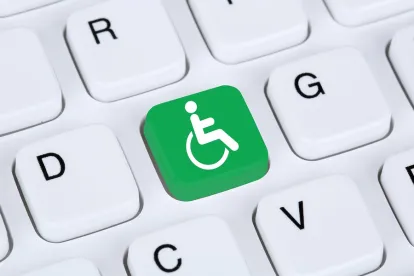New York City maintains some of the most expansive and comprehensive human rights laws in the nation. Two new amendments to the city’s laws, which address the process that employers (and other covered entities, such as public and housing accommodations) must use to evaluate reasonable accommodation requests from individuals with disabilities, add to the city’s substantial body of human rights law. These city requirements are in addition to applicable disability accommodation duties under the Americans With Disabilities Act and state law.
Effective October 16, 2018, Sections 8-102 and 8-107 of the administrative code of the City of New York (which houses the city’s human rights laws) will require all New York City employers with four or more employees to engage in a “cooperative dialogue” with “a person entitled to an accommodation or who may be entitled to an accommodation under the law.”
The dialogue, which can be written or oral, must include an evaluation of:
(a) The individual’s needs
(b) The nature of the requested accommodation
(c) The burden to the employer if it were to be granted
(d) Potential alternatives to the requested accommodation
Upon the conclusion of this “cooperative dialogue,” the employer must then provide the person requesting the accommodation “with a final written determination identifying any accommodation granted or denied.” Failure to engage in this cooperative dialogue within a reasonable time will constitute an independent claim for an unlawful discriminatory practice.
In this regard, and as set forth in the New York City Council’s report on the amendments, the change in the law “legislatively modifies the holding of Jacobsen v. New York City Health & Hospitals Corp., 22 N.Y.3d 824, 838 (2014), which held that refusal to engage in a good faith interactive process is not independently actionable under the HRL.”
The long-term impact of these amendments, obviously, remains to be seen – and there certainly are several aspects of the new law that are likely to be further clarified through litigation. Among these open issues, employers will have to wait to see how courts construe the requirement that a dialogue take place within a “reasonable time” of the request for the accommodation. Similarly, courts will need to more fully articulate the extent of the dialogue that must take place to satisfy the requirements of the law. Finally, given that the proposed amendment had specifically mandated that the employer provide the rationale for its decision in its written determination, but the explicit requirement was dropped from the final law, plaintiffs may attempt to press for an interpretation of the amendments in their totality, which implicitly would impose the requirement to provide a written rationale for the employer’s decision.
Notwithstanding this uncertainty, there are a few points that immediately are apparent. The upcoming changes to the city’s Human Rights Law will create some additional administrative burdens for New York City employers. Most pertinently, employers will need to implement specific procedural measures to ensure that each request for an accommodation is fully vetted by way of iterative communications with the requesting individual, and that the results of such communications are provided to the individual in a written determination.
Furthermore, since it is always a prudent course of action to consult counsel to ensure that recent developments in the law are brought to the company’s attention, New York City employers should consider seeking updates on this issue from their counsel. Finally, while these amendments may be specific to New York City for now, as momentum for expanded protections for individuals with disabilities grows, employers in all jurisdictions would be wise to stay informed on this issue.




 />i
/>i


